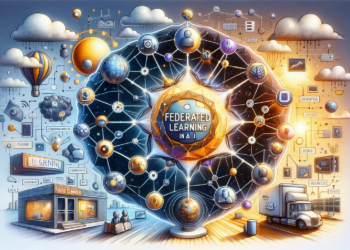Introduction to Bayesian Inference and Artificial Intelligence
Bayesian inference and artificial intelligence (AI) are two significant concepts today. Both aim to provide users with a means of reaching informed conclusions from data. Although these two terms are often used interchangeably, there are vital differences between them. In this guide, we will discuss what Bayesian inference and artificial intelligence are and how they relate to each other.
What is Bayesian inference?
Bayesian inference is a decision-making process based on statistics. It is founded on the principle of Thomas Bayes, which is a form of probabilistic reasoning used to determine the likelihood of an outcome given a set of data. The statistical method was developed by Thomas Bayes in the 18th century.
Bayesian inference relies on the principles of probability theory. This theory deals with how data are distributed and how they relate to each other. This means that one can use Bayesian inference to make inferences about the future from past data. For example, Bayesian inference can be used to predict the behavior of a group of people in a given situation.
Bayesian inference can be used to enhance existing statistical models or to develop new ones. For instance, one can use Bayesian inference to improve a linear regression model, meaning that additional variables can be added to the linear regression to enhance the outcomes.
One of the main benefits of Bayesian inference is that it can be used to analyze known data, which allows one to make informed decisions about the data’s behavior. This is especially useful when there is a limited amount of data available.
What is artificial intelligence?
Artificial intelligence is a field of computer science focused on the development of computer systems that can perform tasks generally associated with intelligent human behavior. This means AI systems can make informed decisions on a vast range of problems, from pattern recognition to long-term decision-making.
AI systems are generally based on algorithms, which are a set of rules that enable the systems to perform certain tasks. These algorithms can be trained to improve their performance, meaning AI systems can learn from data. This learning ability is one of AI systems’ principal benefits.
AI systems can also use Bayesian inference techniques, which means they can make informed decisions from known data. This implies that AI systems can assist users in making informed decisions about a wide range of issues.
How do Bayesian inference and artificial intelligence relate?
Although Bayesian inference and artificial intelligence are different concepts, they relate in several ways. Firstly, Bayesian inference is a statistical technique that can be used to enhance existing statistical models or to develop new models. This technique can also be used to analyze known data, enabling one to make informed decisions about the data’s behavior.
Secondly, artificial intelligence systems often rely on algorithms that can be trained to improve performance. These algorithms can also utilize Bayesian inference techniques to make informed decisions from known data. This means AI systems can help users make better decisions about a broad spectrum of problems.
Lastly, Bayesian inference and artificial intelligence can be used together to improve outcomes. For example, one might use Bayesian inference to enhance a linear regression model and then use an AI system to further improve the results.
Conclusion
Bayesian inference and artificial intelligence are two important concepts currently. These terms are often used interchangeably, but there are notable differences between them. Bayesian inference is a statistical technique that can be used to enhance existing statistical models or to develop new ones. On the other hand, artificial intelligence is a computer science field that focuses on developing computer systems capable of performing tasks typically associated with intelligent human behavior.
While these two terms differ, they relate in several ways. Bayesian inference can be used to improve existing statistical models and to analyze known data. Conversely, artificial intelligence systems are built on algorithms that can be trained for enhanced performance and can also employ Bayesian inference techniques. Ultimately, Bayesian inference and artificial intelligence can be combined to improve outcomes.






















